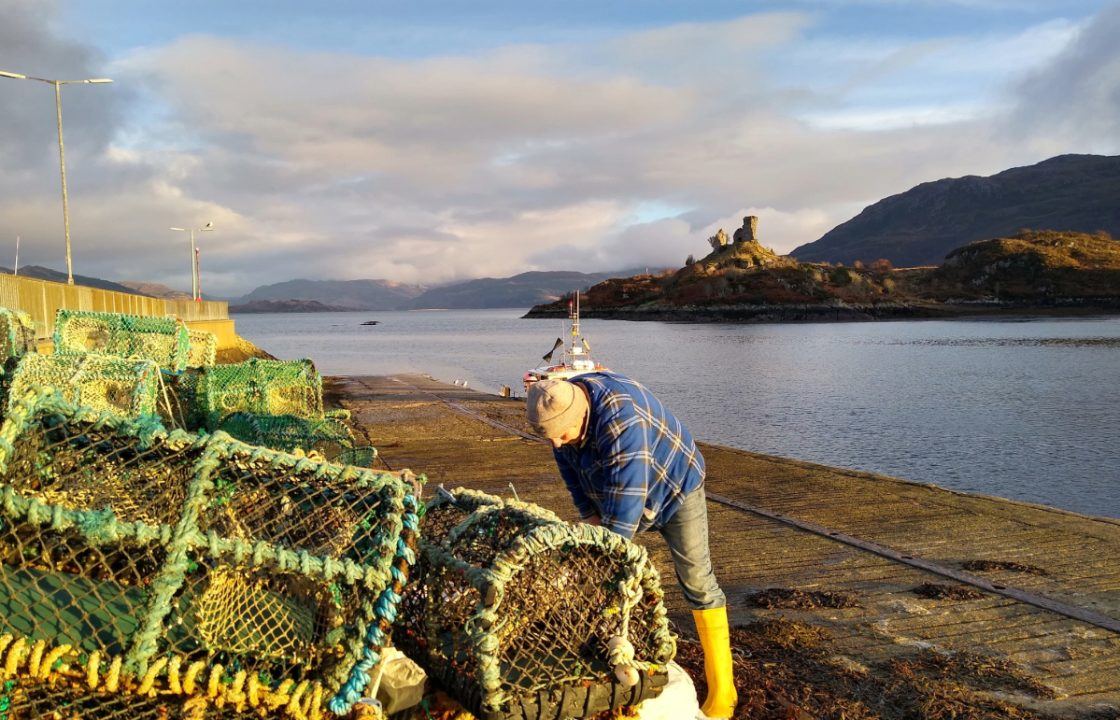A successful trial of fishing rope that sinks rather than floats shows it could be a simple and low-cost way to prevent whale deaths, conservationists said.
The trial working with creel fishers in Scotland shows the gear’s use could significantly reduce the entanglement of whales and other marine animals such as basking sharks without causing problems for fishers or damage to the seabed.
Marine charity Whale and Dolphin Conservation (WDC) says it hopes the relatively inexpensive gear could be rolled out for use in similar fisheries around the world, saving many whales and sharks.
The charity led a project, funded by the Scottish Government, to trial the use of a specially designed sinking rope in Scottish pot fisheries for the groundlines that link lines of pots or creels together.
The rope currently used for the groundlines is buoyant and forms floating loops in the water, where it can entangle large marine wildlife, leading to death or serious injury.
Previous research has shown that in Scottish waters around six humpback whales, 30 minke whales and 29 basking sharks become entangled annually.
Where the type of entanglement was known, 83% of minke whales, 50% of humpback whales and 76% of basking sharks were caught in these floating groundlines.
WDC said use of the sinking groundlines would prevent such entanglements.
But key to its use is whether it works for fishers, so the project involved 15 fishing vessels targeting langoustine and crabs from the Inner Sound and Sound of Sleat area east of the Isle of Skye, with floating rope replaced with the leaded sinking groundlines.
The fishing crews involved in the trial, which covered 1,545 hauls of creel pots over 18 months, reported back on the new rope.
Anticipated problems such as snagging or being difficult to handle were very rare, and fishers even found it was sometimes preferable to their usual rope, the study found.
A report on the trial said the new groundline “is relatively inexpensive, reliable, and does not require changes in fisheries management or to fishers’ working practices”, and added it did not cause scouring or damage to the seabed.
“This project is highly encouraging, both because of its results – that there may be a simple, low-cost option to greatly reduce entanglement risk – and because of the very successful, bottom-up, partnership approach with Scottish creel fishers,” the report’s authors said.
Susannah Calderan, who managed the project for WDC, said: “The Scottish inshore creel fishery plays an important economic and community role in rural coastal areas in Scotland.
“Resolving the issue of entangling whales would be a major step forward in fisheries management as well as animal conservation and welfare.
“It’s been great working with the Inner Sound fishers on this project, and we have an almost unique opportunity to make a real impact on whale bycatch.
“We now have to move to the next step, which is consulting with other fishers around Scotland and with the Government to understand the possible options for implementing sinking rope more widely.”
The Scottish Creel Fishermen’s Federation (SCFF) partnered WDC in the project.
The organisation’s Bally Philp, who participated in the trial, said: “This trial has shown there can be win-win outcomes for both fishermen and marine life, and we’re all working together to achieve this.”
The fishing rope was provided to the fishing vessels for free, and it is hoped that the success of the trial will lead to government funding for a national-level initiative to encourage fishers to make the simple switch in their gear.
Follow STV News on WhatsApp
Scan the QR code on your mobile device for all the latest news from around the country


 Whale and Dolphin Conservation
Whale and Dolphin Conservation
























